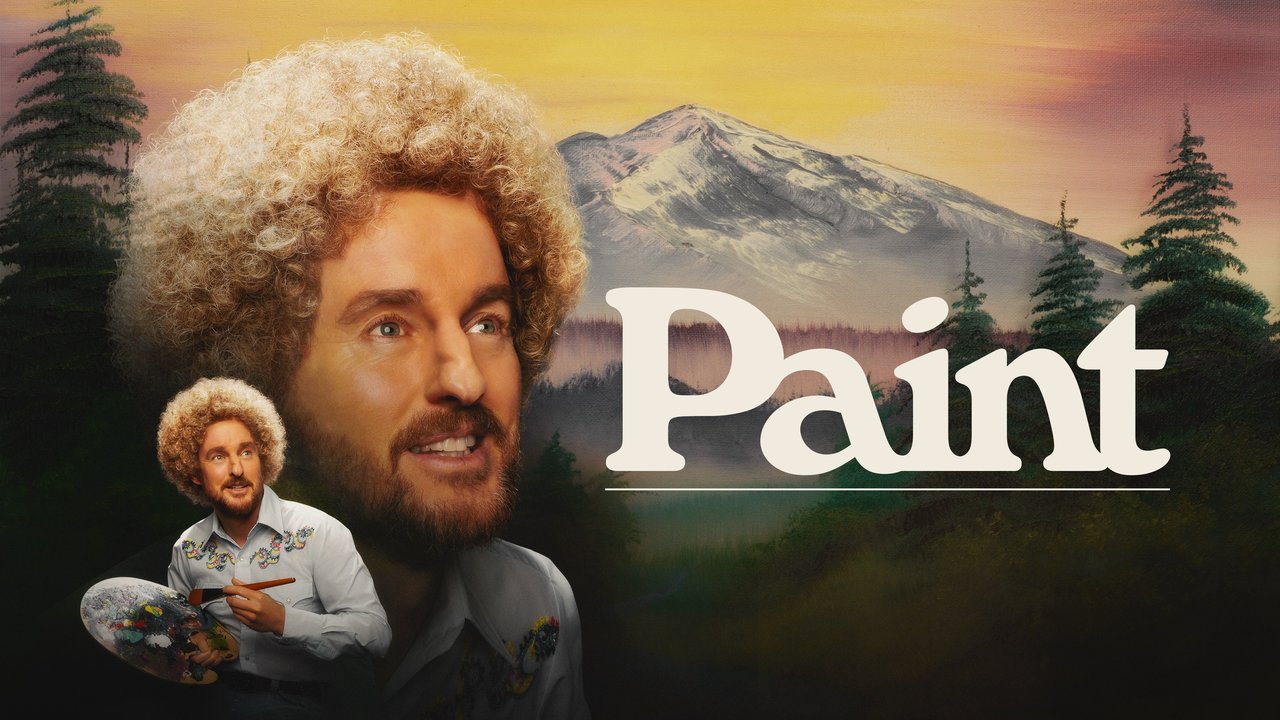‘Paint’ Tries To Cash in on Bob Ross’ Legacy Without Respecting It
Wait ... is he or is he not playing Bob Ross?

When the trailer for Owen Wilson’s latest film, Paint, first dropped, folks on the internet couldn’t help but notice that Wilson’s character, “Carl Nargle,” bears an awfully striking resemblance to beloved painter/cable television host Bob Ross, whose series The Joy of Painting ran for a staggering 31 seasons on PBS.
It’s not hard to tell why so many viewers immediately assumed that Paint was some sort of Bob Ross biopic—everything from the embroidered shirts to the white guy afro to the soft-spoken vocal tones to the film’s aesthetic sensibilities and poster font is very clearly and deliberately reminiscent of Ross and The Joy of Painting. But despite the overwhelming volume of visual references to Ross and his much-loved series, the trailer for Paint is conspicuously absent of any direct mentions of Ross’ name, which has left many unsure of whether or not he film is actually about Bob Ross.
So, is it? Short answer: nope. Despite the fact that Paint is very clearly trying to invoke the viewers’ existing understanding/knowledge of Bob Ross as the groundwork of Wilson’s character, the film Paint is not a Bob Ross biopic, nor is it even a fictionalized recounting of his life. Instead, Paint is an entirely original (or, as original as you can be when your entire identity is built on mimicking a real person) comedy-drama film that chronicles the failing romantic and professional lives of Carl Nargle (Wilson), the most popular cable television painter in Vermont.
Though he’s had long running success, his position as the monarch of TV painting is threatened when the network brings in a newer, younger female painter, Ambrosia (Ciara Renee), in an attempt to boost ratings. Between clashes with Ambrosia and a personal crisis about whether or not his art is good enough to be displayed in a local museum, Nargle also navigates a messy romantic history in which he repeatedly struck up relationships with network crew members.
For a film that’s seemingly parodying one of the most universally well-liked figures in American media, Paint paints (for lack of a better word) its leading man not as a tender-hearted nature lover, but a manipulative hack who borderline abuses his fame and position of power at the network to attract women. He’s repeatedly demonstrated to be callous, self-centered, and entirely unaware of the pain he’s causing in the lives of those around him—and the entire time, it’s being played for comedy.
Though it technically falls under the label of “dramedey” or perhaps (in a generous light) romcom, Paint is utterly lacking in a sense of humor. The script is simply not funny, instead emphasizing Nargle’s most toxic, repulsive qualities in an attempt to pull paradoxical humor from his soft-spoken television personality. But while a drama about an adored television personality who’s secretly skeevy and manipulative is certainly an interesting story, trying to play the strange, winding narrative of Paint for comedy instead turns the film into a strange, lifeless parody lacking in self-awareness.
The film’s use of Ross’ imagery and persona is also bizarre—mainly because it would seem to imply that Bob Ross himself is a cruel or manipulative person, which feels particularly mean-spirited considering the conceit of the film only works when it’s understood that Ross was, by all accounts, a gentle, kind man. Granted, Paint is successful in its aesthetic and tonal recreation of Ross and The Joy of Painting: The entire film is cast in warm, gauzy shades, and the score is a steel-guitar infused Appalachian folk-style soundtrack that feels right at home in the mountains Ross so loved to paint. But such painstaking effort put into recreating a particular, fondly remembered artist is then used in service of an unfunny at best, and mean-spirited at worst, film that cashes in on Ross’ legacy without respecting it.
As Carl Nargle, Wilson does a serviceable Ross impression. He’s got the soft-spoken patter down and the calm, unrelenting gaze, but even existing goodwill for Wilson can’t quite mask how strangely and frustratingly Nargle, as a character, is written, and those narrative shortcomings bleed into the script. Paint, as a film, is very deliberately calm and low-key (almost recreating the atmosphere of The Joy of Painting), but that commitment to tonal consistency also robs the film of any emotional punch. Whether volleying jokes our poring his heart out, Nargle is a one-note character living in a one-note film, and the result is a wall-to-wall beige viewing experience.
It’s frustrating just how cynical and unfunny the Paint script is, not just because of its betrayal of Bob Ross, but because of how it underserves an otherwise talented cast. Wilson stars alongside a slew of seasoned comedic actors, including Wendi McLendon-Covey, Stephen Root, and Michaela Watkins. Watkins, to her credit, serves as the film’s most empathetic emotional touchstone, and also the primary love interest for the womanizing Nargle, but it’s difficult to truly root for her romance when the man she’s with is so patently unsavory—you can’t, for the life of you, understand why all the women of the network seem to be so infatuated with his TV persona when they’ve met the man underneath.
Whether as a comedy, a drama, or a romance-oriented blend of the two, Paint simply doesn’t have the charm or dimension to make for a satisfying film. Tonally flat, strangely uncharitable towards its source material, and lacking in wit or humor, this Owen Wilson vehicle is a not-so-happy little accident I’d like to paint over.
(featured image: IFC Films)
Have a tip we should know? tips@themarysue.com